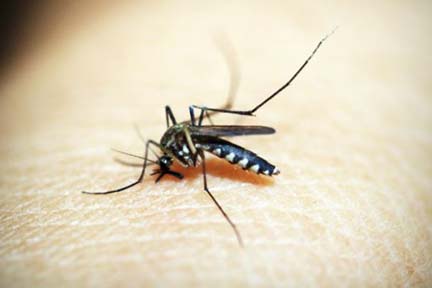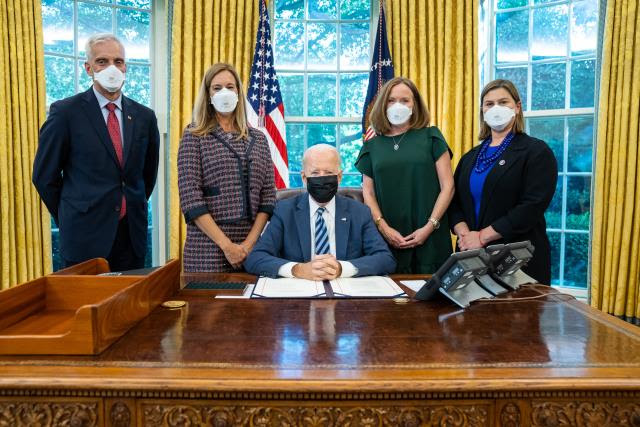|
Press Release
FOR IMMEDIATE RELEASE: Aug. 27, 2021
CONTACT: Lynn Sutfin, 517-241-2112, SutfinL1@michigan.gov
First mosquitoes of 2021 carrying Eastern Equine Encephalitis
virus found in Barry County
Michiganders urged to take precautions against mosquitoes
LANSING, Mich. – Michigan residents are being reminded by the Michigan Department of Health and Human Services (MDHHS) to protect themselves from mosquito bites following the detection of the first Eastern Equine Encephalitis (EEE)-positive mosquito pool of the year in Barry County.
The discovery in Barry County follows a report by the Michigan Department of Agriculture and Rural Development of an EEE-positive horse from Livingston County and underscores the need for both Michigan residents and horse owners to take precautions.
“These discoveries indicate that the EEE virus is here in Michigan and provides warning that residents could also become infected by a mosquito,” said Dr. Joneigh Khaldun, MDHHS chief medical executive and chief deputy director for health. “Michigan residents are urged to take precautions and protect themselves from mosquito bites as EEE is one of the most dangerous mosquito-borne diseases in the U.S., with a 33 percent fatality rate among humans who become ill.”
EEE has a 90 percent fatality rate in horses that become ill, and infection in both people and animals occurs through the bite of an infected mosquito. EEE is not spread from person-to-person.
Signs of EEE include the sudden onset of fever, chills, and body and joint aches. Illness can eventually develop into severe encephalitis, resulting in headache, disorientation, tremors, seizures and paralysis. Permanent brain damage, coma and death may also occur in some cases.
This is the first year the MDHHS Bureau of Laboratories has been performing testing on mosquitoes collected by local health departments and academic partners. To date, over 43,000 mosquitoes have been tested.
Residents can stay healthy by following steps to avoid mosquito bites:
- Apply insect repellents that contain the active ingredient DEET, or other U.S. Environmental Protection Agency-approved product, to exposed skin or clothing, and always follow the manufacturer’s directions for use.
- Wear long-sleeved shirts and long pants when outdoors. Apply insect repellent to clothing to help prevent bites.
- Maintain window and door screening to help keep mosquitoes outside.
- Empty water from mosquito breeding sites around the home, such as buckets, unused kiddie pools, old tires or similar sites where mosquitoes may lay eggs.
- Use nets and/or fans over outdoor eating areas.
“For horses, EEE is a serious but preventable disease,” said State Veterinarian Nora Wineland, DVM. “Positive mosquito pools can help to identify areas of risk. Horse owners should work with their veterinarian to develop a plan to protect their animals.”
To safeguard their horses, owners could take the following measures:
- Talking to a veterinarian about vaccinating horses against EEE.
- Placing horses in a barn under fans (as mosquitoes are not strong flyers) during peak mosquito activity from dusk to dawn.
- Using an insect repellant on the animals approved for the species.
- Eliminating standing water on the property-i.e., fill in puddles, repair eaves, and change the water in buckets and bowls at least once a day.
- Contacting a veterinarian if a horse shows signs of the illness: mild fever and stumbling, which can progress to being down and struggling to stand.
Additionally, West Nile virus activity in Michigan has increased in wildlife and mosquito populations. Health officials have identified 11 positive mosquito pools and 10 infected animals in the Lower Peninsula. No human cases of West Nile virus have been reported to date; however, a case has been reported in a horse from Midland County.
Mosquito-borne illness will continue to be a risk in Michigan until late fall when nighttime temperatures consistently fall below freezing.
For more information about mosquito-borne diseases, visit Michigan.gov/emergingdiseases. |









